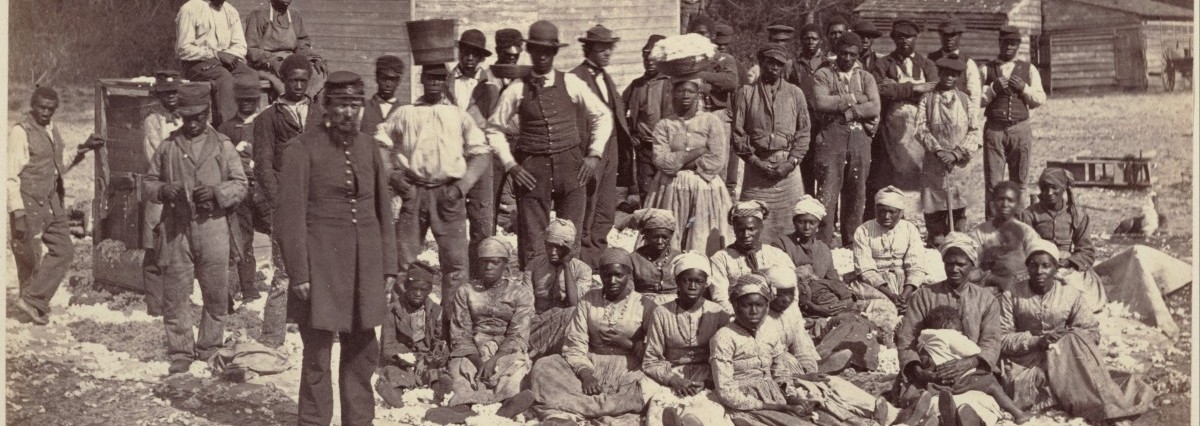Came across this excerpt from a sermon delivered in 1860 in South Carolina by Rev. William O. Prentiss. The title is, “The Power of Slave Labor.”
Three hundred and fifty thousand white men directing the labor of less than four millions of African slaves, have furnished the material, out of which has been reared this colossal fabric, and it begins to topple to its fall at the first bright promise that their sustaining aid shall be withdrawn. If further proof be required that the labor to which I have alluded, has built up these vast, these important interests, consult the statistics of our country; study figures which no human ingenuity can torture into indorsement of a lie. History shows that the country makes no palpable improvement until the grand staple of the earth’s necessities begins to be reared here, and that its advances are exactly proportioned to the amount and value of the African slave labor employed by us. The whole commerce of the civilized world is based upon this labor; it feeds the hungry, it clothes the naked, it employs the idler, it supports tottering thrones and starving paupers; kings in their diadems, and beggars in their rags, all cry aloud to the god who feeds them, ‘Give us this day our daily cotton.’
And that, my friends, is a mid-nineteenth century interpretation of American Exceptionalism.

Reverend William O. Prentiss emphasizes a concept many choose to ignore. Northerner’s, because of their numerical and material superiority, tend to laugh at the idea of “King Cotton.” Shelby Foote, albeit a brilliant narrator, got it wrong when he claimed, “the North fought with one arm behind its back.” By the start of the war the North had as many factories operating as the South had factory workers and those factories in the North continued to produce using the South’s “daily cotton” throughout the four year struggle.
One thing I have noticed that is alarming and even more so disturbing is that no one says the proslavery advocates were: 1. Incorrect about the people they were advocating slavery for or 2. They were making it up entirely just so they could continue engaging in their evil enterprise.
For what seems to be no one to raise even a cloud of doubt with regards to their propaganda against Africans is very disturbing. Every time I see a presentation of what these people have said about Africans whether it is on the speaking circuit or on a website, no one says these people were lying or didn’t know what they were talking about.
I’m getting the impression people actually believe that what those nuts said was true. Which means the people of the 2000s are either on the same immoral/evil mindset or have the same low levels of intellect as those of the 1800s.
Everytime I read these speeches and letters from proslavery advocates it makes wonder profoundly about what kind of mind dreams this up. Is such a mind human or satanic?
What he says is quite true. The Empire of Cotton by Sven Beckert expands on the centrality of cotton manufacture to the industrial world.
Absolutely. I also recommend Ed Baptist’s recent book, The Half Has Never Been Told.
I’ve heard that cotton was king. It was apparently also a god, to be bowed down to, and sacrificed to.
This passage makes a good argument for reparations.
How?
Since American slavery was foundational in the building of the western economies and since those who benefited from these economies were primarily descendants of Europeans it is reasonable to provide reparations to those descendants of slaves who did not benefit from the plantation system.
If we think of reparations as cutting checks to descendants of slaves, I think it would be problematic. After all many black people living in the US now descended from families who arrived after emancipation. Yet they endured the racism that was the legacy of slavery. And the economic damage done by Jim Crow and other discriminatory practices in the late 19th and 20th centuries had as much as impact as slavery, or more.
Ta Nehisi Coates in “The Case for Reparations” defines “reparations” very broadly, not as cutting checks to individuals but as a national recognition of racism and its social, political and economic effects, and a national effort to reform. The attempt by my school district to interrupt the “school to jail” pipeline or vastly curb the use of school suspensions, both of which fall more heavily on minorities I view as a very partial “reparation.”
In an interview(by my terrible memory), Coates actually waved away any discussion of slavery(paraphrasing) the Civil War covered that, its the more recent stuff that he is concerned with.
Strange. Despite the name of the sermon, the focus of the passage is on the importance of cotton. I also agree with Matt and Coates.
The most exceptional thing about American Exceptionalism is its bare existence.